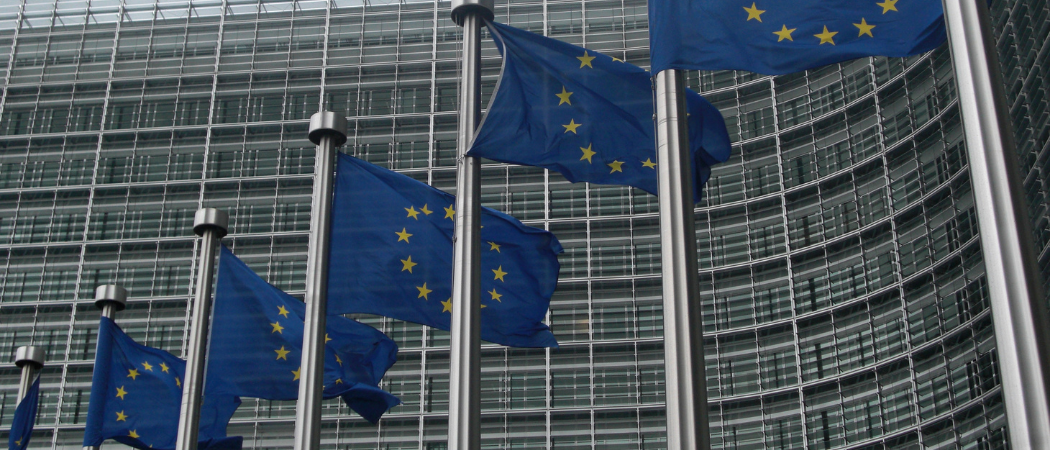The nuclear fusion project at ITER will be cut by €120M, while basic science and health and climate R&D get a bigger than expected top up in 2024

The European Commission building in Brussels. Photo: Sébastien Bertrand / Flickr
The European Parliament and member states reached a deal for next year’s EU budget late on Friday night, agreeing more money for research and innovation than expected.
The final deal includes €12.9 billion for Horizon Europe, with no part of the research programme cut. However, nuclear fusion research funded through the Euratom R&I programme is in line for a €120 million cut.
In a win for Horizon Europe, Parliament managed to secure a €85 million top-up for basic, health and climate research, compared with the original proposal put by forward the European Commission in July.
With inflation rising, it’s not much of a boost in real terms but is far from the worst case scenario, with Parliament managing to defend the budget from a €166 million cut proposed by member states.
But policymakers decided to reduce funding for the International Thermonuclear Experimental Reactor megaproject (ITER) by €120 million after a series of delays and organisational issues rocked the project. The move will affect the EU contribution for the construction, operation and exploitation of the ITER facilities, managed by the fusion for energy (F4E) partnership.
The cut doesn’t come as a surprise. ITER hasn’t been able to absorb all the funding awarded to it and thus agreed to divert it to other research priorities, a spokesman for F4E confirmed.
Last month, the Parliament warned managers of the project that political support is dwindling and could soon affect funding.
In a committee hearing at the end of October, MEP Christian Ehler urged ITER chief Pietro Barabaschi and Marc Lachaise, director of F4E, to communicate clearly about the issues plaguing the project as well as its potential to demonstrate nuclear fusion can be used to produce carbon-free energy.
Auditors chime in
ITER was conceived 38 years ago by the US and then-Soviet Union, alongside other founding members. It kicked off in 1998 but construction in Cadarache, France only began in 2007.
The European Court of Auditors (ECA) brought attention to problems facing ITER in this week’s audit of the EU’s research partnerships. The report calls for moves to stabilise the fusion partnership’s “fractious” management structure and take another look at its long term budget.
The partnership currently estimates it needs €19 billion for the construction and operational phase until 2035, but the number is based on 2016 milestones and cost assumptions. It’s due for a review in 2024.
Once the review is in, the money could return to the budget. “The possibility of needing this money in future will be assessed as the ITER project makes progress, and will be discussed between F4E and the Commission in view of the next Financial Framework,” the F4E spokesman said.
The auditors concluded the need for a review was already clear in 2022, when the partnership implemented merely 72% of its commitment budget and 91% of its payment budget. This was “due to the aftermath of the COVID-19 crisis, the war of aggression against Ukraine, and recent technical design issues concerning the current assembly phase of the ITER project,” the auditors said.
They highlighted management worries too. Barabaschi was appointed ITER director after the death of his predecessor Bernard Bigot in 2022. Since then, there have been changes in four of the partnership’s seven senior management positions. The auditors say “this situation presents an increased risk to the sound management and continuity of F4E” at a transitional time for the project.
Horizon gains
The 2024 budget deal gives Horizon Europe more significant firepower than this year’s €12.4 billion but still falls short of the Parliament’s demands.
MEPs had lobbied for an extra €140 million on top of the Commission’s proposal for basic, health and climate research.
They got more than half of it, but while he welcomed the deal, MEP Christian Ehler, the European Parliament’s rapporteur for Horizon Europe, cautioned it still does not meet the demand. The “real needs of Horizon Europe are much greater,” he said.
The top ups are: €25 million extra for health projects, €21 million for climate, energy and mobility, €12 million for the European Research Council and €11 million for food, bioeconomy, natural resources, agriculture and environment. A further €8 million each will go to the MSCA and culture, creativity and inclusive society.
Overall, the MEPs managed to claw back €400 million for Horizon Europe compared to the cuts proposed by the member states.
This isn’t the end for the budget battle. In June, the Commission put forward a proposal for a mid-term revamp of the seven-year EU budget. It includes an extra €2.6 billion for the Horizon Europe start-up fund, the European Innovation Council (EIC), as part of the wider proposal for a Strategic Technologies for Europe Platform (STEP). But the three EU institutions have different ideas on whether and how to put that money in the budget.
The talks are set to heat up in the coming weeks. Siegfried Mureșan, the Parliament’s rapporteur for the 2024 budget, said, “We shall now swiftly also agree on the revision of the multi-annual financial framework to provide reserves for any unforeseen developments that might occur in the upcoming years.”





 A unique international forum for public research organisations and companies to connect their external engagement with strategic interests around their R&D system.
A unique international forum for public research organisations and companies to connect their external engagement with strategic interests around their R&D system.